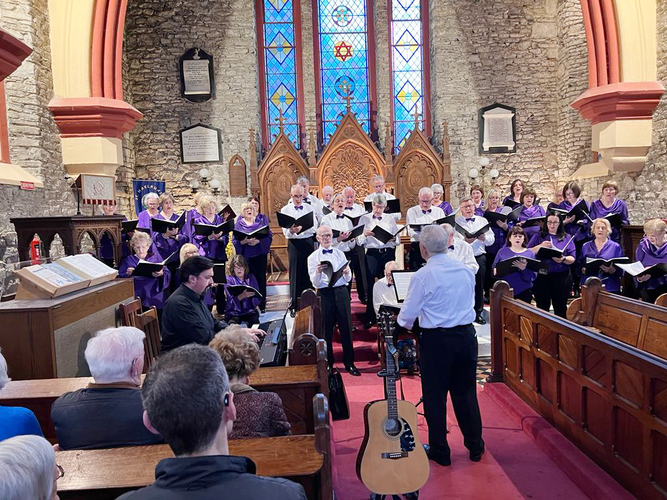Mixed chorus singing brings together four unique voice parts: soprano and alto (ladies), tenor and bass (men). The melody is usually carried by the sopranos, with harmonies woven by the other sections. Sometimes the melody shifts between parts, or everyone sings together in unison for a powerful effect.
Most choral pieces are written for Soprano, Alto, Tenor, and Bass (SATB), but each part can be further divided for richer harmonies.
Soprano
The First Soprano or soprano is the highest female voice, often carrying the melody. The Second Soprano or mezzo-soprano is the most common female voice, bridging the gap between soprano and contralto. Without regular use, soprano voices may deepen into the alto range with age.
Alto
The First Alto is the female equivalent of the male baritone, often spanning up to two octaves. The Second Alto or contralto is the lowest female voice and is quite rare.
Tenor
The First Tenor or countertenor sings the highest male part, sometimes using falsetto. The Second Tenor is just below, and many operatic leads are tenors. With age, untrained tenors may shift toward baritone.
Bass
The First Bass or baritone is the most common male voice, sitting between bass and tenor. The Second Bass sings the deepest notes; many basses can also sing falsetto with training.

Vocal Skills
Every singer brings their own strengths to the choir. The best choral singers:
- Sing in tune and blend their timbre with others
- Control their volume, matching the dynamics and expression required by the music and director
- Pronounce lyrics clearly and in the intended style
- Listen critically and self-correct as needed
- Stay in tune with the group, even through key changes or subtle shifts
Memorizing music allows singers to focus on the director and deliver their best performance. The most memorable moments come when the choir is united in sound and attention.
Our Repertoire
From classical masterpieces to contemporary hits, our choir embraces a rich and varied repertoire. Whether you love timeless sacred music, musical theatre, or popular tunes, there's something for everyone at our performances.
Here are just some of our favourites:
| Popular Music | Musicals, Classical & Contemporary | Sacred Music |
|---|---|---|
| Amarillo (Is This the Way To) | Ag Criost An Siol | Adeste Fidelis |
| Beautiful Barbados | All in the April Evening | Ave Verum (Elgar / Mozart) |
| Blue Moon | Almost like Being in Love (Brigadoon) | Christmas Carols (many) |
| Cantique de Jean Racine | Andrew Lloyd-Webber Medley | Christmas Night (Rutter) |
| Do You Hear What I Hear | Angelus (Maritana) | Christmas Sanctus |
| Down By the Riverside | Anthem (Chess) | Gaudeamus |
| Down to the River to Pray | At the End of the Day (Les Miserables) | Gloria (Vivaldi) |
| Hallelujah (Cohen) | Banaha | Come to the Manger |
| Home from the Sea | Bring Him Home (Les Miserable) | Jesu, Joy of Man's Desiring (Bach) |
| I am Sailing / Sailor (medley) | Calypso Medley | Joy to the World |
| Lazy-Hazy-Crazy Days of Summer | Can't Help Lovin' Dat Man (Showboat) | Jubilate Deo (Mozart) |
| Let it snow / Winter Wonderland (medley) | Castle on a Cloud (Les Miserables) | Lourdes Magnificat (Decha) |
| Love Is Blue | Dia Do Bheatha | O Holy Night |
| Lullaby (Goodnight My Angel) (Joel) | Do You Hear | The Little Shepherd Boy |
| Mistletoe and Wine | Down to the River to Pray (Oh Brother, Where Art Thou) | The Majesty & Glory of Your Name |
| Over My Head | I Can't Give You Anything But Love (Blackbirds of 1928) | The Virgin's Slumber Song |
| Perfect (Sheeran) | I Dreamed A Dream (Les Miserables) | |
| Rivers of Babylon | Ireland's Call | |
| Save the Last Dance for Me | May the Road Rise to Meet You | |
| Softly As I Leave You | May We Never Have to Say Goodbye | |
| Streets of London | Mice and Men | |
| Tears in Heaven | Ringsend Rose | |
| Virgin Mary had a Baby Boy, The | Speed Your Journey (Nabucco) | |
| When I'm Sixty Four | Strawberry Beds | |
| Yesterday / Michelle (medley) | Thugamar Fein | |
| You Raise Me Up | You're Just in Love (Call Me Madam) | |
| Va Pensiero (Nabucco) |
